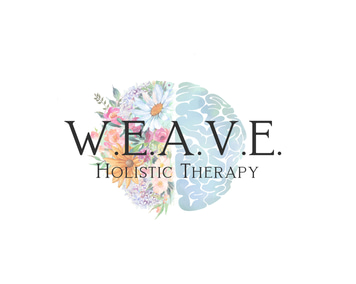What is EMDR?
EMDR, or Eye Movement Desensitization and Reprocessing, is a type of therapy designed to help you heal from difficult or traumatic experiences. Instead of talking through every detail, EMDR uses a unique approach where you focus on specific memories or feelings while following guided movements (like watching a therapist's hand move or listening to tapping sounds). This process helps the brain "reprocess" those memories, making them feel less intense and overwhelming over time.
In other words, EMDR works with your brain’s natural ability to heal, helping you let go of painful emotions connected to past experiences. Many people find that EMDR brings them relief faster than traditional talk therapy, allowing them to feel more grounded and at peace in their daily lives.


Healing Childhood Trauma with EMDR Therapy
If you’re struggling with the effects of childhood trauma, EMDR therapy can help you find relief and move forward. EMDR works to reduce the emotional impact of painful memories, helping you regain peace and resilience.
Who It’s For: Survivors of childhood trauma experiencing symptoms like PTSD, low self-worth, depression, or anxiety.
How It Helps: EMDR reduces the intensity of distressing memories, allowing you to release the emotional weight of past experiences.
Why Choose EMDR: This approach has been shown to effectively help those carrying trauma from sexual, physical, or emotional harm.
EMDR therapy can be a powerful tool in reclaiming your life, helping you build a future rooted in strength and self-compassion.


Healing Recent Traumatic Events with EMDR Therapy
If you've experienced a recent trauma, EMDR can help you process it and move forward with less emotional distress. EMDR is a powerful tool to reduce the impact of trauma so it doesn’t linger in your daily life.
Who It’s For: Those who have experienced a recent traumatic event, such as an accident, assault, or natural disaster.
How It Helps: EMDR allows the brain to reprocess the trauma, reducing anxiety, flashbacks, or intrusive thoughts.
Why Choose EMDR: Many clients experience relief quickly, preventing recent trauma from developing into long-term distress.
EMDR therapy offers the opportunity to heal sooner, so you can regain stability and peace of mind.


Enhancing Performance with EMDR Therapy
EMDR isn’t just for healing trauma; it can also help you break through mental blocks and enhance performance in various areas of life. By reprocessing limiting beliefs and reducing performance-related stress, EMDR can support you in reaching new levels of success.
Who It’s For: Athletes, business professionals, artists, and anyone looking to excel in high-performance areas, including relationships.
How It Helps: EMDR targets self-doubt, limiting beliefs, and past setbacks, allowing you to perform with more confidence and clarity.
Why Choose EMDR: EMDR provides tools to help you overcome mental barriers, manage performance anxiety, and fully realize your potential.
With EMDR, you can push past limitations and achieve your goals with renewed focus and self-assurance.


Healing from Loss and Grief with EMDR Therapy
EMDR therapy can provide relief for those struggling with unresolved grief, helping to process complex emotions after a significant loss. This approach offers a path to navigate painful memories and find acceptance.
Who It’s For: Individuals who have experienced a significant loss, whether through death, separation, or other life changes.
How It Helps: EMDR can ease the intensity of grief, allowing you to process memories and emotions tied to the loss without feeling overwhelmed.
Why Choose EMDR: EMDR provides a safe way to honor your loss while moving towards healing and inner peace.
Through EMDR, you can find balance, remember with compassion, and embrace life again.


Relationship trauma can leave lasting emotional wounds, impacting self-worth and trust. EMDR therapy helps process these painful experiences, supporting you in rebuilding healthy relationships and self-confidence.
Who It’s For: Individuals recovering from abusive or toxic relationships, betrayal, or painful breakups.
How It Helps: EMDR reduces emotional responses tied to relationship trauma, helping to release feelings of guilt, shame, or low self-worth.
Why Choose EMDR: This approach provides a path to move beyond past hurts and build healthier relationship patterns.
EMDR can be a powerful tool for letting go of past relationship pain, empowering you to create fulfilling connections.
Healing from Relationship Trauma with EMDR Therapy
Whether you’re working through past trauma, coping with loss, breaking free from old patterns, or aiming for new levels of success, EMDR therapy offers a transformative path forward. Let’s start building the resilience, peace, and growth you deserve—schedule your consultation today.
W.E.A.V.E Therapy Practice
Monthly "Wellness Minute" Newsletter
officeadmin@weavetherapypractice.com
301-301-2270
© 2024. All rights reserved.
A simple monthly email with tips, prompts, and tools designed to help you thrive.
The information provided on this website is for general informational purposes only and should not be construed as professional advice. Always seek the advice of a qualified mental health professional regarding any mental health concerns. All content on this website, including text, images, and graphics, is the property of W.EA.V.E Therapy Practice (Collective Eudaimonia, LLC) and is protected by copyright law. Unauthorized use or reproduction of any content is prohibited.
